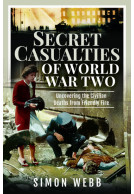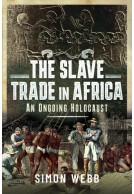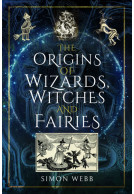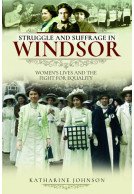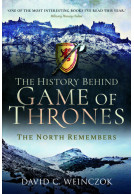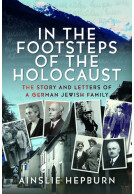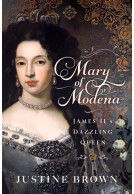Suffragette Fascists (Paperback)
Emmeline Pankhurst and Her Right-Wing Followers
Imprint: Pen & Sword History
Pages: 208
Illustrations: 32 black and white illustrations
ISBN: 9781526756886
Published: 13th August 2020
Last Released: 1st February 2023
(click here for international delivery rates)
Need a currency converter? Check XE.com for live rates
| Other formats available | Price |
|---|---|
| Suffragette Fascists ePub (4.1 MB) Add to Basket | £6.99 |
Emmeline Pankhurst is seen today as a valiant champion of democracy, but in the 1930s certain prominent former suffragettes were comparing her to Hitler and Mussolini. It was suggested that Mrs Pankhurst and her Women’s Social and Political Union could be viewed as a proto-fascist movement; an idea likely to strike the modern reader as grotesque.
Yet the WSPU certainly had much in common with the fascist parties that emerged after the end of the First World War. The group was financed by wealthy and aristocratic backers, and terrorism, in the form of bombing and arson, was widely used against working-class men and women. This, together with the rampant anti-Semitism and ambivalent attitude to democracy, all indicate that there was more to the suffragettes than we now realise. Few people today, for example, know that Emmeline Pankhurst was an advocate of ethnic cleansing and the use of concentration camps, nor that her daughter was imprisoned during the Second World War for pro-Nazi activities.
This helps to explain how former suffragettes came to hold such important positions in the British Union of Fascists in the years before the Second World War. After all, the ideology and structure of Oswald Mosley’s fascist party was so eerily similar to that of Emmeline Pankhurst’s Women’s Social and Political Union.
In this book, Simon Webb explores the real world of the suffragettes and the woman they idolised as 'the Leader', discovering that the movement indeed foreshadowed the rise of fascism during the 1930s.
He takes an unusual and controversial look at the suffragette movement, which is refreshing and something I think it should be explored more. Many people think that the leaders and the movements should be perfectly clean and in line with modern day ideals, which is strange, considering that ideas and ideals change over time, when people learn more, but to learn we need to start the conversation.
Coffee and Books
Read the full review here
This is, again, something I knew absolutely nothing about.
Books Monthly
It turns out there was more to the Suffragette movement than Emily Davison jumping in front of a horse during the Derby, no the movement went on into the future. The only problem is that the flag wavers for suffrage movement such as Emily Pankhurst and the WSPU, were you could argue had been left a bit empty handed and with less of a cause. After all women now did have the vote and more say in the workplace and could (although limited) make it into certain parts of power. After the First World War, much like what was happening in Germany was that smaller neglected movements were having trouble in finding their place in the world. And so it was often seen that smaller groups with less desirable aims would work together, thereby becoming something far different from their original aims.
UK Historian
What a fascinating book indeed, I know feel bad for not knowing anything about suffragette fascists, which is more fool me but also more fool society suffragette fascists are never featured in any part of history in schools or society. Why this is, I don’t know why, maybe people don’t like to think that women could stoop to that level but it is so disappointing. When you think there was still so much left to be done to further the cause of the fairer sex, it’s as if they have missed a huge opportunity. The book looks into the new leaders of the WSPU, their thoughts, attitudes and beliefs, the blackshirts, before the war, during and after. The author Simon Webb has done a great job here and it would be good to see him write deeper into the subject. This was a really great read and I really did learn a lot from reading this, this is a book to read for all.
⭐⭐⭐⭐⭐
Read the full review here
This certainly was an eye opener. I wanted to read this book because the word Suffragette and Fascists didn't fit together in my mind.
NetGalley, Maria-Anne DHooghe
I always believed in these women being heroines fighting for equality. Reading this book I felt only anger that the cause was only used for their personal benefit and interpretation. They really never got sentenced for what I consider mayor crimes. The short imprisonment did not fit their crimes. The forced feeding might have been a bit brutal but I can’t help feeling any kind of sympathy towards them. They were not interested into getting the vote for everybody only the more privileged class of woman. This book is a must for anybody that would like to have a bit better understanding. Certainly there were woman serious about what the suffragette should have stood for but it wasn't Emmeline Pankhurst and her WSPU. What they might have accomplished without it been their intention that working class male ended up getting the vote rather sooner than later.
A tremendous amount of research was done and was presented clearly with an understanding of the times and social unrest of that period.
The title fascinated me from the start because, as a male, the only Suffragettes that I knew anything about were Emily Davison and, of course, the Pankhursts and then only the "widely circulated" information about them.
NetGalley, Jon Jonnson
This book was a total revelation and Simon Webb has done an excellent job of making the history of the Suffragettes a very readable one, with little to no conjecture. I could not have imagined such a colourful past for these ladies who seemed to have turned their unshakable belief from a less than Universal Suffrage to Fascism purely at the behest of their Leader.
The Suffragettes were I think best known for their slogan - Votes For Women - a simple catch phrase which did not reflect their actual agenda which was votes for SOME women and which was intended to exclude the women of the "lower classes" from getting that vote. Their whole movement went downhill from there and, regrettably, society and history appear to have chosen to whitewash them into legendary paragons of virtue.
This book deserves and needs to be read so that the legend that is the Suffragettes can be correctly seen as the myth that it truly is.
Simon Webb is a very brave man. I can imagine the backlash from writing on this subject could be horrendous for anyone, let alone a man.
NetGalley, Dawn Lewis
The book itself is fascinating. Details are given and supported by contemporary documents, making it impossible to deny that the history we are taught of suffragettes is warped at best, destructive at worst... it makes for very interesting reading.
Suffragette Fascists is a historical non-fiction, each and every chapter is thoroughly details and the source and information are well stated. My favourite part in the book are the illustrations, there are pictures, there are posters from that time with short descriptions which is a treat for the readers... he part which made the book particularly interesting was that deals with questions and debunks myths at the same time. Even if you know nothing about the topic you can definitely read this one as it introduces you about pankhurst, suffragettes, that dark time for female in History and so on.
NetGalley, Udisha Jain
About Simon Webb
Simon Webb is the author of a number of non-fiction books, ranging from academic works on education to popular history. He works as a consultant on the subject of capital punishment to television companies and filmmakers and also writes for various magazines and newspapers; including the Times Educational Supplement, The Daily Telegraph and The Guardian.










